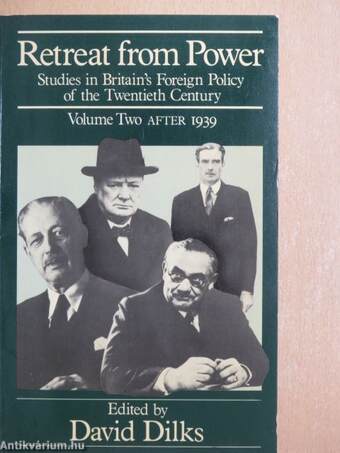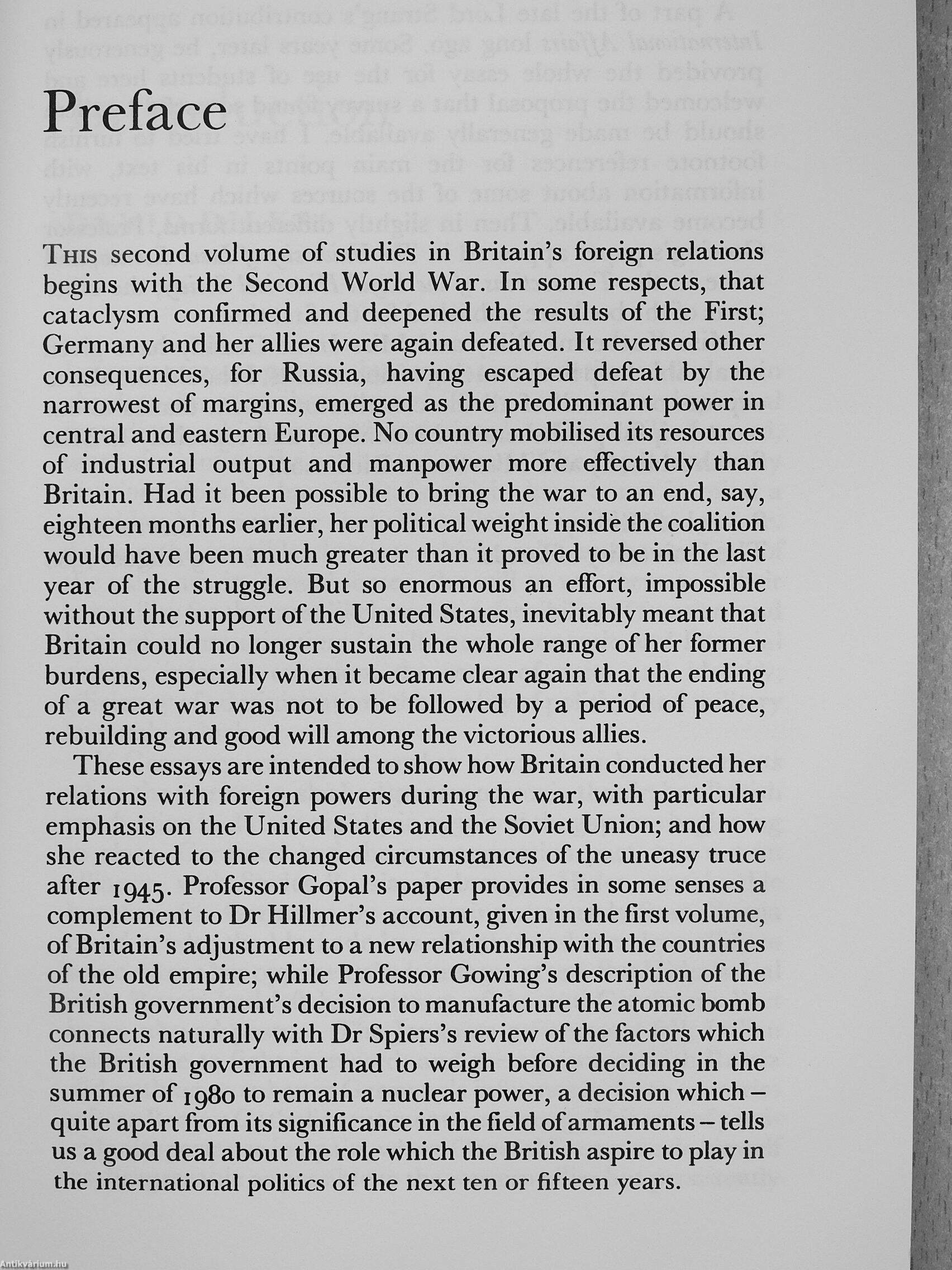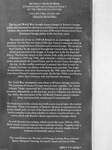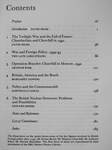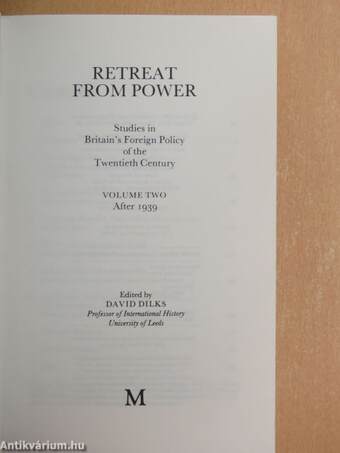1.063.472
kiadvánnyal nyújtjuk Magyarország legnagyobb antikvár könyv-kínálatát

VISSZA
A TETEJÉRE
JAVASLATOKÉszre-
vételek
Retreat From Power 2.
Studies in Britain's Foreign Policy of the Twentieth Century/After 1939
| Kiadó: | The Macmillan Press Ltd |
|---|---|
| Kiadás helye: | London |
| Kiadás éve: | |
| Kötés típusa: | Ragasztott papírkötés |
| Oldalszám: | 189 oldal |
| Sorozatcím: | |
| Kötetszám: | |
| Nyelv: | Angol |
| Méret: | 21 cm x 14 cm |
| ISBN: | 0-333-29320-7 |
| Megjegyzés: | További kapcsolódó személyek a könyvben. |
naponta értesítjük a beérkező friss
kiadványokról
naponta értesítjük a beérkező friss
kiadványokról
Előszó
TovábbFülszöveg
RETREAT FROM POWER: STUDIES IN BRITAIN'S FOREIGN POLICY OF THE TWENTIETH CENTURY
VOLUME TWO: AFTER 1939 Edited by David Dilks
The Second World War brought major changes in Britain's foreign policy and hastened her decline as a worid power. In this second volume of essays the contributors look at some of the major themes which have dominated foreign policy in the last forty years.
The outbreak of war in 1939 left Britain in an alarmingly isolated position. For the first two years of the war America remained aloof as Germany conquered most of western and central Europe. The attack on Pearl Harbor by the Japanese brought the United States into a war which was not only to be fought in Europe but in the Far East and Africa. The first two essays in this volume look at the perilous position
of Britain in 1939 and 1940, and at Britain's relations with foreign states, particularly the United States and the Soviet Union, throughout the war. As the conflict continued it seemed clear that... Tovább
Fülszöveg
RETREAT FROM POWER: STUDIES IN BRITAIN'S FOREIGN POLICY OF THE TWENTIETH CENTURY
VOLUME TWO: AFTER 1939 Edited by David Dilks
The Second World War brought major changes in Britain's foreign policy and hastened her decline as a worid power. In this second volume of essays the contributors look at some of the major themes which have dominated foreign policy in the last forty years.
The outbreak of war in 1939 left Britain in an alarmingly isolated position. For the first two years of the war America remained aloof as Germany conquered most of western and central Europe. The attack on Pearl Harbor by the Japanese brought the United States into a war which was not only to be fought in Europe but in the Far East and Africa. The first two essays in this volume look at the perilous position
of Britain in 1939 and 1940, and at Britain's relations with foreign states, particularly the United States and the Soviet Union, throughout the war. As the conflict continued it seemed clear that in order to contain Germany an alliance with Russia was essential. Yet Anglo-Soviet relations were never harmonious. By 1945 some British politicians feared Russia's expansionist aims. By the late 1940s it was Russia rather than Germany who had become the enemy.
The 'Cold War' prompted a new phase in Britain's foreign relations. The countries of western Europe moved closer together. The North Atlantic Treaty committed the United States to the defence of those countries. Meanwhile, in the Far East, western influence was diminishing. India, the centrepiece of the old British Empire, gained independence and joined the refashioned Commonwealth.
The final essays in this volume deal with a now crucial topic: the nuclear deterrent. There is an analysis of Britain's decision to manufacture the atomic bomb and a review of the factors which the British government had to consider in deciding whether to remain a nuclear power, a decision which tells Britain's future aspirations in foreign affairs.
As with the previous volume, which covers the years 1906 to 1939, these articles contain material never published before. Together with a comprehensive introduction they provide valuable insights for all students of twentieth-century history.
The contributors are: the late Lord Strang, Graham Ross, Edward Spiers, Margaret Gowing, Sarvepalli Gopal and David Dilks.
ISBN 0 333 29320 7 Vissza
Témakörök
- Idegennyelv > Idegennyelvű könyvek > Angol > Történelem > Európa története > Egyéb
- Történelem > Idegennyelvű > Angol
- Történelem > Politika > Külpolitika > Diplomácia
- Történelem > Kontinensek szerint > Európa, európai országok története > Nyugat-Európa > Anglia
- Történelem > Legújabb kor > II. világháború > Hadtörténet
- Történelem > Hadtörténet > Hadügy, hadviselés
- Történelem > Tanulmányok



